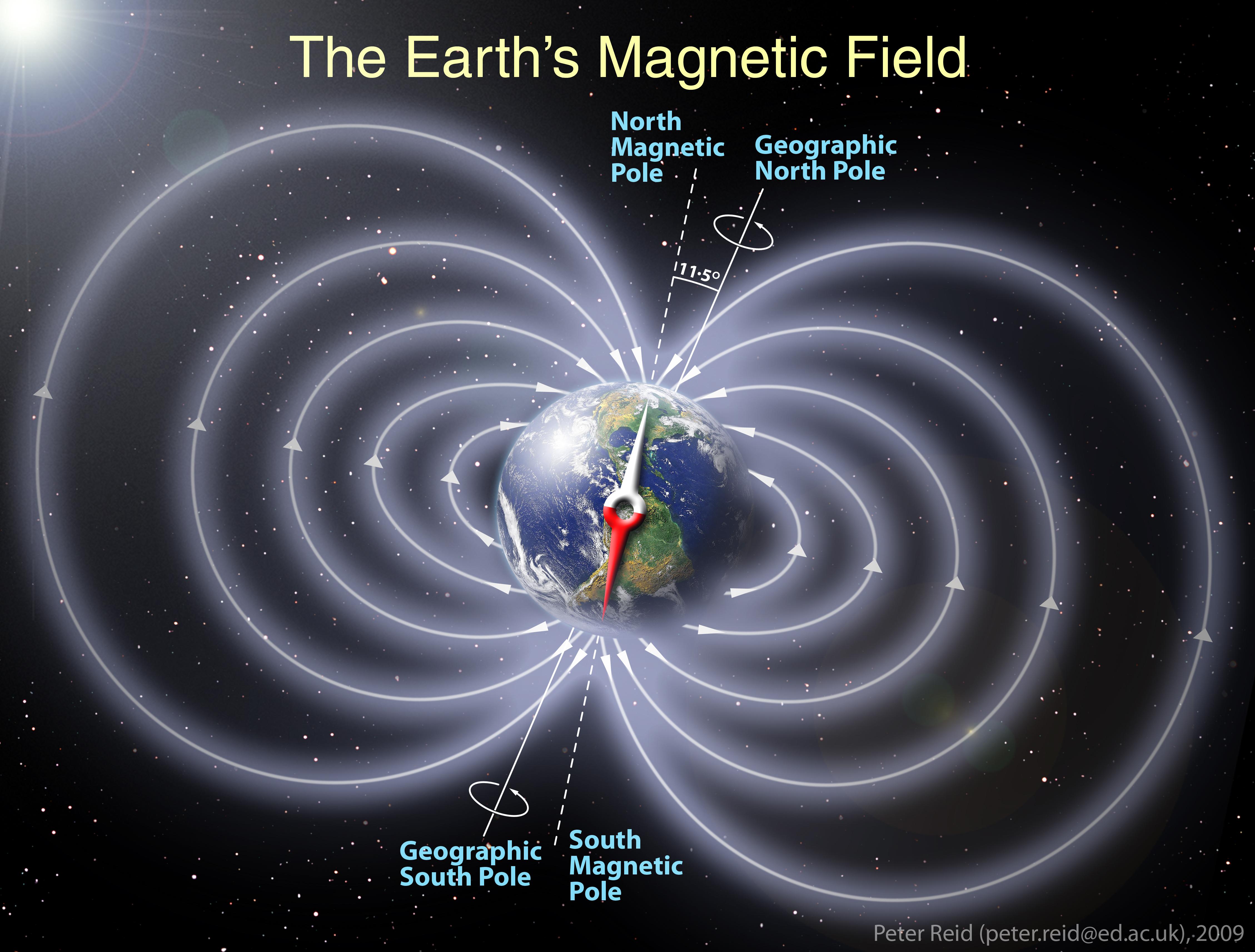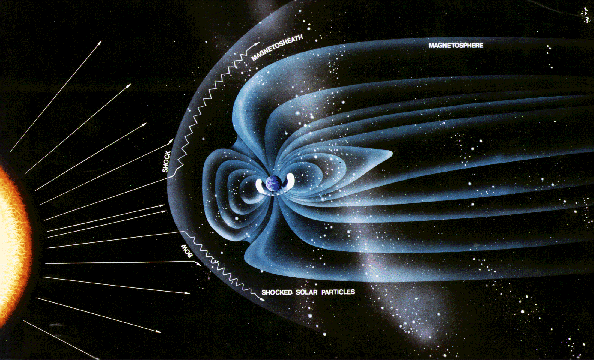
When the sun's plasmic
protons and electrons get sucked into Earth’s magnetic field,
these particles light up the gases in the funnel of our
magnetosphere as if it were a neon tube display case. Fairbanks, population
80K, becomes Bright
Lights, Big City.
I always understood
that the Earth's magnetosphere looked like this--happy, like a
pumpkin.
 |
| Peter Reid, http://www.nasa.gov/images/content/607968main_geomagnetic-field-orig_full.jpg |
When it turns out that it
looks more like this most of the time from the constant solar
wind:
 |
 |
| http://airandspace.si.edu/exhibitions/exploring-the-planets/online/earth/img/magneto.gif | http://iconicphotos.wordpress.com/2010/05/31/blown-away-man/ |
Mercury, Venus, and Mars
have negligible magnetospheres. Some scientists suggest
that the onslaught of solar CME storms were a contributing
factor to the other planets in the neighborhood losing their
atmospheres. Our magnetosphere may be a very important
thing indeed. [21]
The video below does a great job of showing how the magnetic
field lines interact between the sun and earth. The
lines connect, stretch, and reconnect on the dark side of the
planet--especially watch 3:10-3:40. This causes the
charged plasma particles to tumble into earth's well,
following the field lines, and land in our backyard.
| NASA SDO |
| INTRO: PLASMA |
MAGNETISM |
SOLAR WIND |
CORONAL
MASS EJECTIONS (CMEs) |
SOLAR FLARES |
DYSTOPIA |
MAGNETOSPHERE |
BIBLIOGRAPHY |